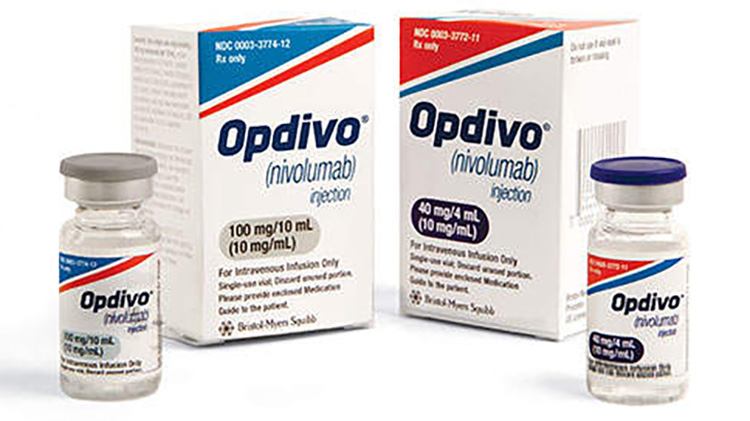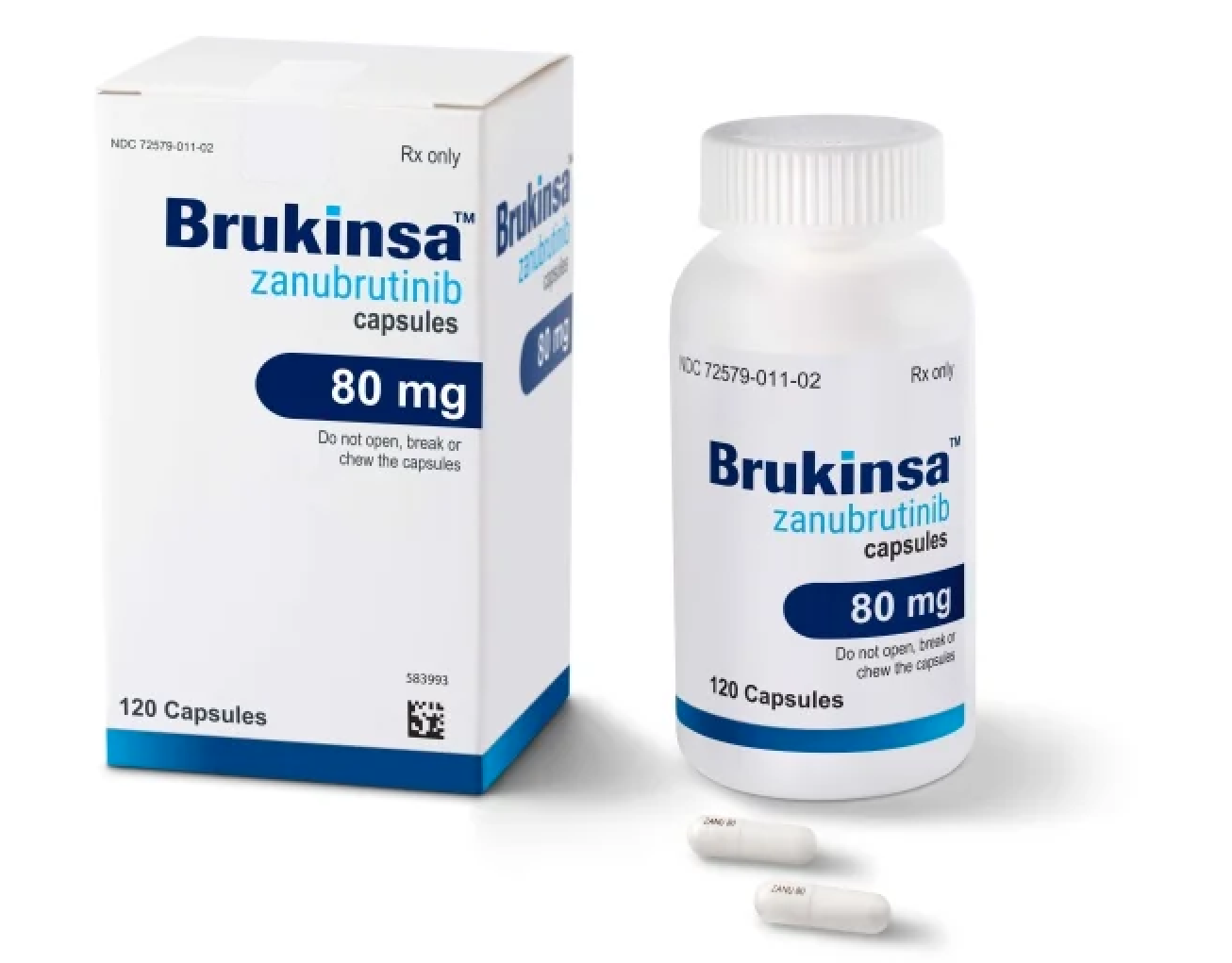Opdivo (Nivolumab) vs Brukinsa (zanubrutinib)
Opdivo (Nivolumab) vs Brukinsa (zanubrutinib)
Opdivo (nivolumab) is an immune checkpoint inhibitor designed to enhance the body's immune response against cancer cells by blocking the PD-1 protein on T cells, making it particularly effective in treating a variety of cancers such as melanoma, lung cancer, and kidney cancer. Brukinsa (zanubrutinib) is a Bruton's tyrosine kinase (BTK) inhibitor that interferes with the B-cell receptor signaling pathway, primarily used in the treatment of mantle cell lymphoma and other B-cell malignancies. When deciding between these two medications, it is crucial to consider the specific type of cancer being treated, as their mechanisms of action are different and they are approved for different indications, thus a healthcare provider's assessment based on the individual's cancer type and overall health condition is essential.
Difference between Opdivo and Brukinsa
| Metric | Opdivo (Nivolumab) | Brukinsa (zanubrutinib) |
|---|---|---|
| Generic name | Nivolumab | Zanubrutinib |
| Indications | Various types of cancers including melanoma, lung cancer, renal cell carcinoma, Hodgkin lymphoma, and others. | Mantle cell lymphoma, Waldenström's macroglobulinemia, and other B-cell malignancies. |
| Mechanism of action | PD-1 inhibitor that activates the immune system to attack cancer cells. | Bruton's tyrosine kinase (BTK) inhibitor that blocks B-cell proliferation and survival. |
| Brand names | Opdivo | Brukinsa |
| Administrative route | Injection (IV) | Oral |
| Side effects | Fatigue, rash, musculoskeletal pain, pruritus, diarrhea, nausea, and others. | Neutropenia, thrombocytopenia, anemia, bruising, diarrhea, cough, and others. |
| Contraindications | Known hypersensitivity to nivolumab or any of its excipients. | Known hypersensitivity to zanubrutinib or any of its excipients. |
| Drug class | Monoclonal antibody, Immune checkpoint inhibitor | Small molecule kinase inhibitor |
| Manufacturer | Bristol-Myers Squibb | BeiGene |
Efficacy
Introduction to Opdivo (Nivolumab) in Lymphoma Treatment
Opdivo, known generically as Nivolumab, is an immunotherapy drug that has shown efficacy in the treatment of certain types of lymphoma. As a programmed death-1 (PD-1) inhibitor, Opdivo works by blocking a pathway that restricts the immune system's ability to attack cancer cells, thereby enhancing the body's immune response against the tumor. It has been particularly studied in Hodgkin lymphoma, especially in cases where the disease has relapsed or become refractory to other treatments. Clinical trials have demonstrated that Nivolumab can induce responses in a significant proportion of these patients, leading to its approval for this indication.
Efficacy of Opdivo (Nivolumab) in Clinical Trials
Clinical trials have been a critical component in assessing the efficacy of Opdivo for lymphoma. For instance, the CheckMate 205 trial, which evaluated Nivolumab in patients with relapsed or refractory Hodgkin lymphoma, showed an overall response rate of 69% in patients who had previously received autologous stem cell transplant and brentuximab vedotin. These results have provided evidence of the potential benefit of Nivolumab in this patient population, leading to its use in clinical practice for Hodgkin lymphoma with these specific prior treatments.
Introduction to Brukinsa (Zanubrutinib) in Lymphoma Treatment
Brukinsa, also known as Zanubrutinib, is a Bruton's tyrosine kinase (BTK) inhibitor used in the treatment of mantle cell lymphoma (MCL) and other B-cell malignancies. It has been designed to bind irreversibly to BTK, thereby inhibiting the proliferation and survival of malignant B cells. The efficacy of Zanubrutinib in lymphoma has been evaluated in several clinical trials, and it has shown promising results, particularly in patients with mantle cell lymphoma who have received at least one prior therapy. Its approval for this indication offers an additional therapeutic option for patients with this challenging form of lymphoma.
Efficacy of Brukinsa (Zanubrutinib) in Clinical Trials
The efficacy of Brukinsa in mantle cell lymphoma was highlighted in the BGB-3111-206 and BGB-3111-AU-003 clinical trials. In these studies, Zanubrutinib demonstrated a high overall response rate with a favorable safety profile. The BGB-3111-206 trial, for example, showed an overall response rate of 84% in patients with relapsed or refractory mantle cell lymphoma. The results from these studies have supported the use of Zanubrutinib as an effective treatment option for patients with this type of lymphoma, particularly those who have not responded to or have relapsed after other treatments.
Regulatory Agency Approvals
Opdivo
-
European Medical Agency (EMA), European Union

-
Food and Drug Administration (FDA), USA

-
Health Canada

-
Pharmaceuticals and Medical Devices Agency (PMDA), Japan

-
Therapeutic Goods Administration (TGA), Australia

-
Medsafe (NZ)

Brukinsa
-
European Medical Agency (EMA), European Union

-
Food and Drug Administration (FDA), USA

Access Opdivo or Brukinsa today
If Opdivo or Brukinsa are not approved or available in your country (e.g. due to supply issues), you can access them via Everyone.org.
How it works

Make an enquiry
Choose the medicine you want to buy, answer a couple of questions, and upload your prescription to speed things up. We’ll get back to you within 24 hours.


Make an enquiry
Choose the medicine you want to buy, answer a couple of questions, and upload your prescription to speed things up. We’ll get back to you within 24 hours.


Breeze through the paperwork
We'll guide you through the required documents for importing unapproved medicine, ensuring you have all the necessary information.


Get a personalized quote
We’ll prepare a quote for you, including medicine costs and any shipping, administrative, or import fees that may apply.


Receive your medicine
Accept the quote and we’ll handle the rest - sourcing and safely delivering your medicine.

Some text on this page has been automatically generated. Speak to your physician before you start a new treatment or medication.
Let's talk
If you have any questions, call us or send us a message through WhatsApp or email:
Contact us




